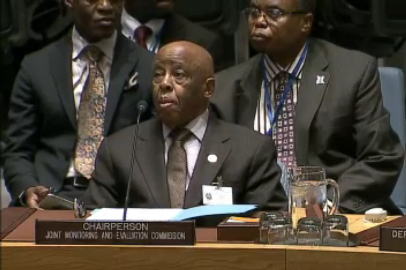S. Sudan peace implementation made “little” progress: JMEC
August 24, 2017 (JUBA) – The second anniversary of the signing of the Agreement on the Resolution of the Conflict in South Sudan (ARCSS) passed with “little meaningful progress” made in the implementation of the accord, an official said Thursday.

JMEC) was established by terms decreed under Chapter Seven of the ARCSS), signed on 17 August 2015 in Addis Ababa, Ethiopia. Under the terms of the Agreement, JMEC shall be responsible for monitoring, overseeing and supporting the implementation of the Agreement and the mandate and tasks of the TGoNU (Transitional Government of National Unity), including adherence of the Parties to agreed timelines and schedules; and in the event of non-compliance, shall recommend appropriate corrective action to the TGoNU.
JMEC is responsible for overseeing the work of CTSAMM (Ceasefire and Transitional Security Monitoring Mechanism), EFMA (Economic and Financial Management Authority), and other transitional institutions created by the Agreement.
According to Mogae, by now the 2015 peace agreement should have achieved considerable progress towards improved security and governance in the war-torn East African nation.
“From day one, however, we have had to persuade the Parties to implement each and every task in accordance with the peace agreement,” said the former Botswana president.
“Two years on since the signing of the peace agreement, there has been little meaningful progress in its implementation,” he added.
Since July 2016, Mogae explained, JMEC has remained profoundly shocked by the rampant hostilities across the country and the rapid deterioration of the political, security, humanitarian and economic situation in South Sudan.
“As a result, we are now rightly absorbed in a process to restore and revitalise the prominence of the peace agreement,” he said.
The JMEC chairman also condemned the ongoing violence around Pagak, a former rebel stronghold town on South Sudan’s border with Ethiopia. The violence, he said, has resulted into suspension of humanitarian aid delivery to those most in need.
“I condemn all the violence that has occurred in and around Pagak over the past month and urge that military operations cease immediately,” stressed Mogae.
He said this cycle of violence, displacement and deprivation of humanitarian support has been repeated around the country over the past year and has led to untold misery among those who seek only to live peacefully and provide for their families.
(ST)
